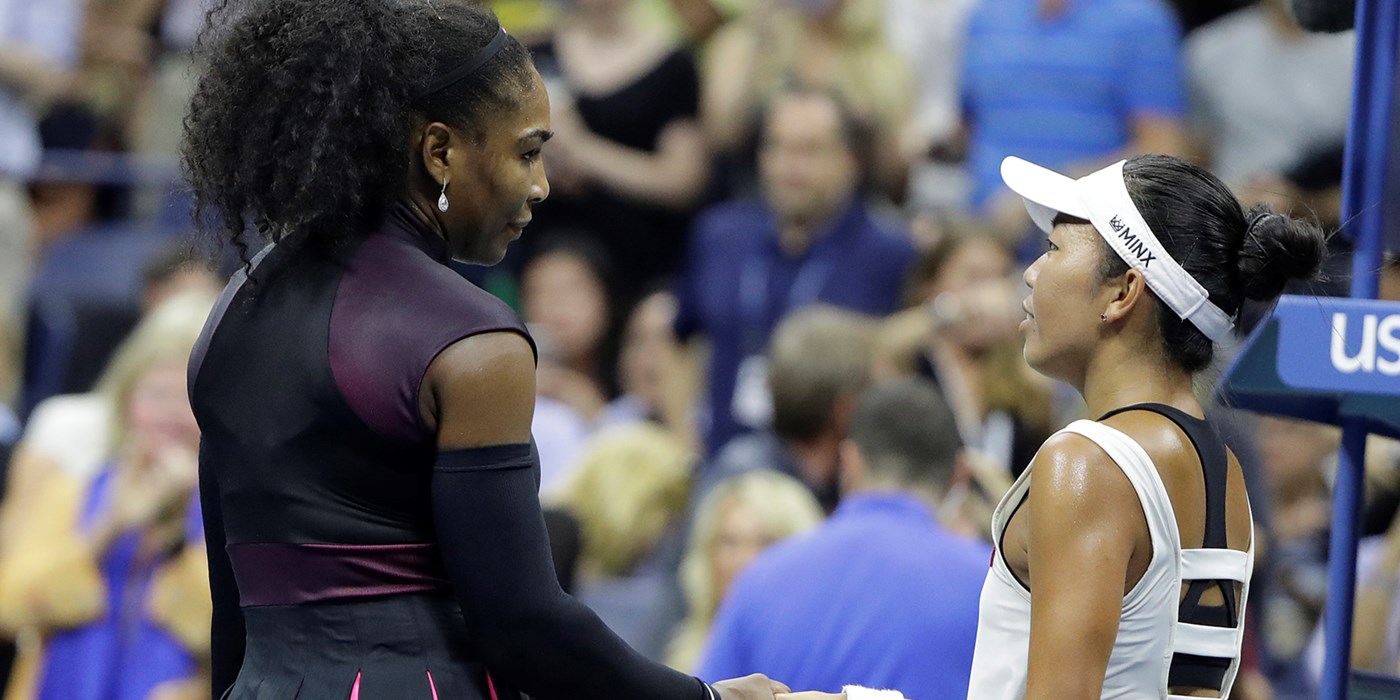Vania King, Psychology

There were really good discussions, good interactions with the other students. Some days, I almost felt like I was there.
College or tennis?
Vania King ’15 had a decision to make. She was 17, the daughter of Taiwanese immigrants, and a top-ranked junior tennis player from California. She could go pro (as had her older brother two years before), or she could go to college. The latter seemed the wiser choice. Stanford had just offered her a full scholarship; she could play tennis there, earn her degree, then join the WTA tour.
Instead, in 2006, she went pro. Four years later—the same year she would have graduated from Stanford—she won the women’s doubles title at Wimbledon (“I screamed for 10 minutes straight,” she recalls. “I was just a kid”). Two months after that, with the same partner, she won the U.S. Open doubles crown.
King remains on the tour today. Her earnings to date are $4.3 million.
She never took Stanford up on its offer. She never even set foot on a college campus. But she did earn her degree. Two degrees, actually: the first in 2015, from UMass Lowell, summa cum laude with a major in psychology; the second three years later, from Northeastern, a master’s in nonprofit management. Both were earned online. She never even considered leaving the tour to earn them.
And though she’d expected to miss out on the going-to-college experience, in the case of UML, it wasn’t much of an issue, she says: “There were really good discussions, good interactions with the other students. Some days, I almost felt like I was there.”
Still, it hasn’t been an easy road. There have been up years and down years: her world singles ranking has swung between 50 and 900 (though she’s been ranked in the top 100 most years), and in doubles, she’s been as high as number three, as low as 275. For most of 2017, she was out with an ankle injury (“for a while, I couldn’t even put my foot on the ground”), which dropped her ranking into the cellar and cut deeply into her earnings.
“It’s a constant uphill battle, the price you pay as an athlete,” King says. “It can feel like a tough way to make a living sometimes. You’re away from home most of the time; you miss out on a lot of things. It’s not the glamorous life some people assume.”
But so far, she says, the good outweighs the bad. And ironically, her recent injury has helped her understand just how true that is: “I missed tennis; I missed the competition,” she says. “The longer I was away from it, the more I appreciated what I had. I wanted to
get back on the court.”
But she’ll be 30 in February. And professional tennis is a young woman’s game. It’s been two years since she was ranked in the top 100 in singles, and it could be a long climb back. King has no illusions about this: “I’ll play for as long as I still enjoy it, and as
long as my body will let me.”
She’s invested enough of her tour earnings, she says, to allow her some freedom. But eventually, she’d like to work for a nonprofit, she says. She’s already involved with two—one for autistic children, another that distributes bed nets to combat malaria in Africa. “Maybe something in mental health, or with teenage athletes, or maybe coaching,” she says. “Something where I can use my experience, the perspective I’ve gained on the tour.
“But definitely nothing nine-to-five.”

